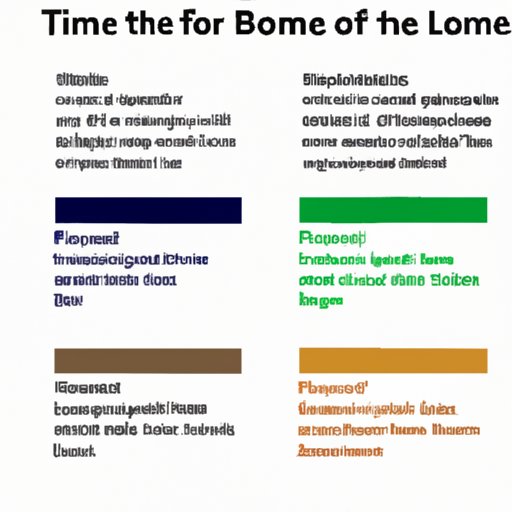Introduction
Tone is one of the most powerful elements in literature. It refers to the attitude or feeling a writer conveys through their words and descriptions. Tone can range from light-hearted and humorous to serious and somber, and it can have a profound effect on the overall impact of a written work. In this article, we’ll explore the power of tone in literature and offer tips for how to use tone effectively in your own writing.

Exploring the Power of Tone in Literature
Understanding the role of tone in literature is key to crafting meaningful works. According to literary theorist Joseph E. Harris, “The author’s tone is the attitude toward his subject that he conveys through his word choice and sentence structure.”1 Tone can be used to create a certain mood or atmosphere and to engage the reader on an emotional level. It can also be used to convey the writer’s opinion or point of view.
Appreciating tone as a tool for crafting meaningful literary works is essential. As noted by poet and essayist David Orr, “Tone is the author’s voice; it’s the way he or she speaks to the reader.”2 Tone can be used to draw readers in and evoke certain feelings or reactions. It can also be used to set the stage for the story or message you’re trying to convey.
How to Use Tone to Enhance Your Writing
Analyzing tone in literary works can help you understand how to use it effectively in your own writing. Pay attention to the words and descriptions a writer uses and the overall mood they create. Consider how the tone of a work affects its impact and how the writer uses it to convey meaning.
Crafting tone through word choice and style is also important. Think about the type of language you use and the emotions it evokes. Choose words that are appropriate for the tone you want to create and pay attention to the punctuation and sentence structure you use. These small details can make a big difference in the tone of your writing.

Examples of Different Types of Tone in Literature
There are many different types of tone in literature. Here are some examples:
Optimistic Tone
Optimistic tone is used to convey hope, positivity, and enthusiasm. Writers often use this type of tone to inspire and motivate readers. Famous authors who have used an optimistic tone in their work include J.K. Rowling and Roald Dahl.
Pessimistic Tone
Pessimistic tone is used to convey a sense of despair and hopelessness. Writers often use this type of tone to explore difficult themes such as death or suffering. Famous authors who have used a pessimistic tone in their work include William Shakespeare and Emily Dickinson.
Satirical Tone
Satirical tone is used to mock or criticize something. Writers often use this type of tone to comment on society or to point out flaws or hypocrisy. Famous authors who have used a satirical tone in their work include Mark Twain and Jonathan Swift.
Wistful Tone
Wistful tone is used to convey a sense of longing or nostalgia. Writers often use this type of tone to explore memories or reflect on the past. Famous authors who have used a wistful tone in their work include Ernest Hemingway and Virginia Woolf.
Humorous Tone
Humorous tone is used to make readers laugh or smile. Writers often use this type of tone to lighten the mood or to provide comic relief. Famous authors who have used a humorous tone in their work include Jane Austen and Kurt Vonnegut.
Aggressive Tone
Aggressive tone is used to express anger or hostility. Writers often use this type of tone to convey strong emotions or to challenge the status quo. Famous authors who have used an aggressive tone in their work include Maya Angelou and Toni Morrison.
Reverent Tone
Reverent tone is used to show respect or admiration. Writers often use this type of tone to honor something or someone. Famous authors who have used a reverent tone in their work include Walt Whitman and Langston Hughes.
Conclusion
In conclusion, tone is an important element in literature. It can be used to create a certain mood or atmosphere and to engage readers on an emotional level. Analyzing tone in literary works can help you understand how to use it effectively in your own writing. By understanding the power of tone and using it appropriately, you can craft meaningful works of literature.
Final Thoughts
Tone is a powerful tool for writers, and it can have a profound effect on the overall impact of a written work. By understanding the role of tone in literature and exploring different types of tone, you can craft meaningful works that engage readers on an emotional level.
(Note: Is this article not meeting your expectations? Do you have knowledge or insights to share? Unlock new opportunities and expand your reach by joining our authors team. Click Registration to join us and share your expertise with our readers.)
